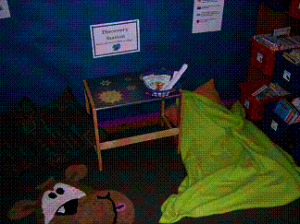If you’ve been following this blog for a while, you may remember Danny – he of the decimals and so forth. He’s an after-school tutoring student of mine. Coming up for twelve, still with speech difficulties and, shall we say, selective about what he gives his attention to…
I no longer teach him maths. Reading has become the priority for our one hour a week together, since – he tells me – he is a ‘7.2’. I’ve no idea what a 7.2 is, although I have a nasty suspicion that it could be his reading age, as tested by the special needs department.
To begin with, the reading books supplied by school looked promising – clean, attractively covered and illustrated and with easy words but age-appropriate content. Week by week he unwillingly stumbled his way through them (“Have we DOT to do dis?”). There was no discernible improvement.
Then the books changed. Suddenly I was being presented with slim volumes of scantily worded and colourfully illustrated tales of ‘Ned the Greedy Dragon’, ‘Timmy the Flying Goat’ and their ilk.
“Seriously, Danny?” I remonstrated as yet another infant picture reader was dumped on the table. “The school gave you this as your reading book?”
“I doze it myself,” he smirked conspiratorially, “I doze it ‘tos its easy!”
There followed a short but pointed lecture from me on the short-sightedness of this strategy and the difficulties that would accrue should he – as seemed more than possible – leave school without basic reading skills.
I didn’t feel I was getting through.
Danny, after all, has had seven long years to perfect his reading-avoidance strategies. He wears them with pride.
Fortunately I know Danny well. As I’ve discovered through our years together, motivation is everything with him. A memory was stirring somewhere in my mind. I recalled beginning to write a simplified version of Life: A Player’s Guide aimed at 9-12 year olds. A short rummage around my PC’s hard drive revealed it: Coran and the Cosmic Computer Game.

Would this story of avatar creation and computer coding in a sci-fi location be of interest to Danny? I strongly suspected that it would. I was also confident that he would be able to grasp – and relish – the analogy being drawn to Life. Would the words be beyond his reading skills? Well they were quite a way ahead of Timmy the Goat et al. On the other had, if he were sufficiently motivated…
It was certainly worth a try.
 First I drew up a grid, so that polysyllabic words could be written out, broken down into their constituent phonemes and blends. (See right.) Then I printed page 1 of the story:
First I drew up a grid, so that polysyllabic words could be written out, broken down into their constituent phonemes and blends. (See right.) Then I printed page 1 of the story:
Coran and the Cosmic Computer Game
A brand new game! Coran was grinning to himself so much that he kept almost bursting into giggles. This was exciting. In fact it was more than exciting.
He collected his pass and headed for the programming suite. That was where he would meet the programmer who would help him build his avatar and enter The Game.
He looked at the pass. It said he needed to go to Station 4. He headed across to the terminal and was greeted by a tall figure who sat the keyboard.
“So, it’s nearly your birth-day, Coran,” said the Tall One, with a nod of his head. “About time for you to do some choosing.”
“Hmm,” said Coran, thinking hard.
Up where Coran lives, birth-days are not the same as birthdays here. A birth-day there means exactly what it says – the day you will be born! Now that may seem odd to you, because Coran is already alive, or he couldn’t be saying, “Hmm,” – could he?
What it means is that Coran is about to be born as a new character in a cosmic computer game. First he needs to select his avatar, which involves making loads of choices, then he will be ready to start playing The Game.
Coran was trying to decide what sort of character he wanted to be in this game. He’d played it many times before, but this game was so mind-blowingly huge that each attempt could be completely different from all the ones before.
“Nothing too easy,” he told the Tall One. “I want a real challenge this time. The last game was utterly boring.”
The Tall One smiled to himself and began to type the code on his machine.
“So you want a big challenge, huh?”
“Definitely,” announced Coran. “My character will have…”
The title was slow going. By the end of the second sentence, though, he was reading most words without asking me to lay them out for him on the phoneme grid. By the end he was barely stumbling on anything. There were about three words in the whole passage I had to read for him.
He regarded me with wide eyes as he finished. “I dort it was doin’ to tate me about a hour to read dat,” he said.
“Me too,” I admitted, and we both smiled broadly.
“Dan I read the next bit next time?” he asked.
As I mentioned, with Danny, motivation is everything. I strongly suspect this is also true of so many of the so-called disaffected or learning-disabled students languishing in our schools.











